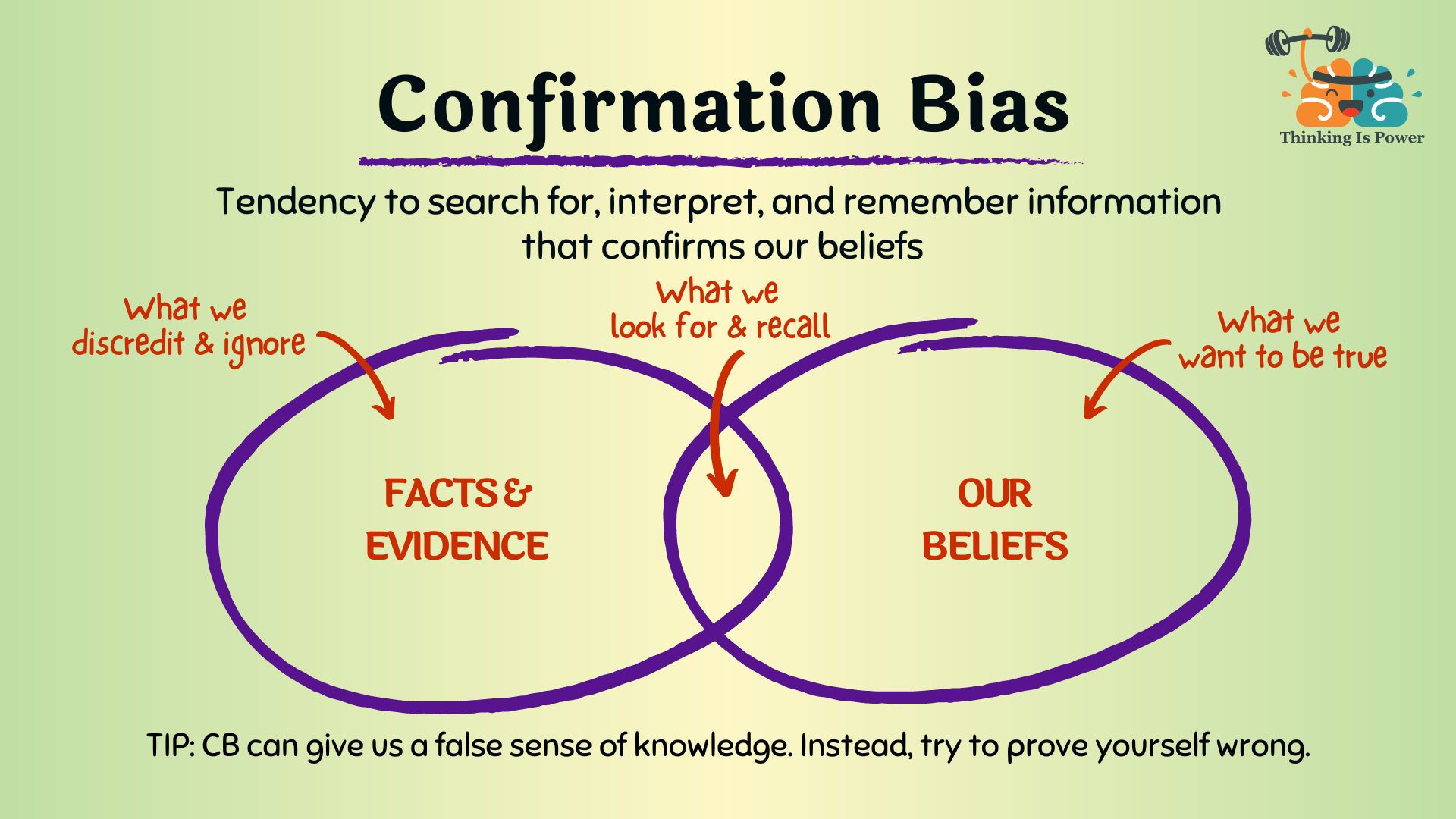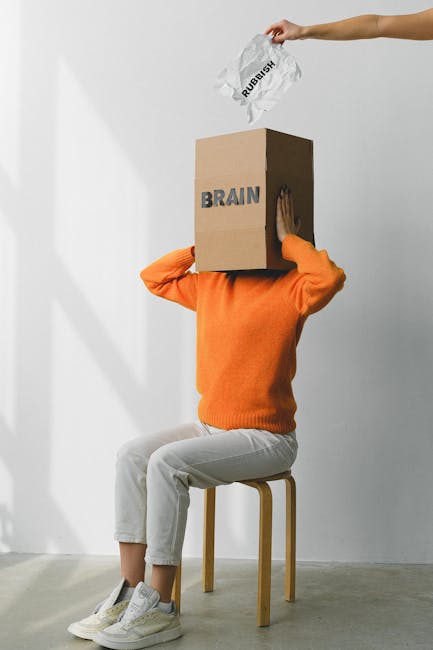Welcome to the bizarre world of the human brain, where reality is merely a suggestion and cognitive biases reign supreme. In this article, prepare to have your perception turned upside down and inside out as we explore the strange and wondrous ways our minds can trick us into seeing things that aren’t really there. So buckle up, dear reader, and get ready to take a wild ride through the labyrinth of our own cognitive biases.
Common Cognitive Biases in Perception
Ever find yourself convinced your partner is deliberately ignoring you, only to realize they were just engrossed in a TV show? Ah, the joys of confirmation bias! This little trickster of a cognitive bias leads us to seek out information that supports our existing beliefs, while conveniently ignoring anything that contradicts them. Who needs reality when you can have your own version of it, right?
And let’s not forget our good old friend, the halo effect. This sneaky bias makes us think that just because someone is good-looking or successful in one area, they must be perfect in all others. I mean, who cares if they’re a terrible driver or have the personality of a soggy potato? They look like a movie star, so they must be a saint!
Then there’s the bandwagon effect, where we jump on the latest trend faster than you can say “unicorn frappuccino”. Who cares if everyone’s doing it, right? It must be the best decision since sliced bread! Who needs rational thought when you can just follow the crowd blindly?
Lastly, let’s not forget the availability heuristic, where we base our judgments on the most readily available information, rather than seeking out all the facts. Oh, that one time your friend got food poisoning from a taco truck? Better avoid all Mexican food for the rest of your life! Because clearly, one bad experience trumps all the delicious tacos in the world.
Impact of Cognitive Biases on Decision Making
Have you ever made a decision and later realized it wasn’t the best choice? Blame it on cognitive biases! These sneaky little mental shortcuts can lead us astray without us even realizing. Let’s take a look at some of the impacts these biases can have on decision making:
- Confirmation Bias: Ever find yourself seeking out information that confirms your preconceived notions? That’s confirmation bias at work! This can lead us to discounting opposing viewpoints and making decisions based on faulty evidence.
- Overconfidence Bias: Feeling like you’re on top of the world and can do no wrong? That’s overconfidence bias for you! This can lead us to taking unnecessary risks and making decisions without fully considering the consequences.
- Anchoring Bias: Ever been swayed by the first piece of information you hear? That’s anchoring bias in action! This can lead us to making decisions based on initial information without fully exploring other options.
Overall, cognitive biases can have a significant impact on our decision-making abilities. By being aware of these biases and actively working to counteract them, we can make more informed and rational choices. So next time you find yourself making a decision, remember to question your assumptions and consider all angles before jumping to a conclusion!

Influence of Cognitive Biases on Memory
Ever wonder why you remember that embarrassing thing you said at a party 5 years ago, but can’t recall what you had for breakfast yesterday? Well, cognitive biases might be to blame!
Our brains are wired in mysterious ways, making us prone to all sorts of memory mishaps. Here are a few ways cognitive biases can mess with our recollection:
- Confirmation Bias: This sneaky little bias makes us remember things that confirm our existing beliefs, while conveniently forgetting anything that challenges them. So, if you’re convinced you’re always right, your memory might be playing tricks on you!
- Availability Heuristic: Your memory is more likely to recall recent or vivid events, even if they’re not necessarily the most important. That’s why you might remember that time you spilled coffee on your boss, but forget important deadlines.
So, next time you’re trying to recall something important, watch out for these cognitive biases lurking in the shadows of your memory!

Exploring How Cognitive Biases Shape Beliefs
Cognitive biases, much like hidden super villains, lurk in the shadows of our minds, shaping our beliefs without us even realizing it. These sneaky little devils influence how we perceive information and ultimately impact the decisions we make. Let’s take a journey into the inner workings of our brains and uncover how these biases are pulling the strings behind the scenes.
One of the most common cognitive biases is confirmation bias. This sly trickster leads us to seek out information that confirms our existing beliefs, while conveniently ignoring any evidence to the contrary. It’s like having a personal hype squad that only cheers for the ideas we already agree with. Who needs reality when you have your own little fan club, right?
Another mischievous bias is the halo effect, where we let our overall impression of someone or something influence our judgment of their specific traits. It’s like judging a book by its cover, only to find out it’s actually a choose-your-own-adventure novel disguised as a self-help guide. Who knew first impressions could be so deceptive?
And let’s not forget about the bandwagon effect, where we hop on the popular opinion train because, well, everyone else is doing it. It’s like being at a party and seeing everyone flock to the mysterious dip in the corner. Sure, it could be delicious, but it could also be a trap set by the elusive Party Goblin. Do you dare take the plunge?

Strategies to Overcome Cognitive Biases in Perception
Now, we all know that our brains can sometimes play tricks on us when it comes to perceiving things. But fear not, there are plenty of strategies you can use to overcome these pesky cognitive biases!
First and foremost, it’s important to challenge your own assumptions. Don’t just blindly accept the first thing that comes to mind – question it! Get curious and dig deeper to uncover the truth.
Another helpful strategy is to seek out different perspectives. Don’t be afraid to ask for feedback from others or to consider alternative viewpoints. Sometimes, a fresh pair of eyes can reveal things we never would have noticed on our own.
Lastly, practice mindfulness and self-awareness. Pay attention to your thoughts and feelings as you perceive things, and try to catch yourself when you’re falling into the trap of cognitive biases. By being more present in the moment, you can better control how you perceive the world around you.
Real-world Examples of Cognitive Biases in Action
Picture this: you go to your favorite burger joint and order a juicy bacon cheeseburger. As you take a bite, you can’t help but think it tastes better than any other burger you’ve ever had. That’s because of the anchoring bias – you’ve set your expectations high for this burger because of your past positive experiences at the restaurant.
Next, let’s say you’re shopping for a new phone. You see one that’s on sale for half the price of the others, so you assume it must be a steal. This is the availability heuristic at play – you’re more likely to think something is a good deal if it’s the first thing that comes to mind.
Now, imagine you’re at a job interview and the interviewer reminds you of your favorite aunt. Suddenly, you find yourself agreeing with everything they say. Congratulations, you’ve fallen victim to the halo effect – when one positive trait influences your overall perception of a person.
FAQs
Why do cognitive biases play such a powerful role in perception?
Well, imagine your brain is basically a stubborn toddler throwing a tantrum when faced with new information. Cognitive biases are like the security blanket the toddler clings to for comfort, shaping how we see and interpret the world around us.
How do cognitive biases impact our daily decision-making process?
Oh, they’re like that one friend who always gives you terrible advice but you listen to them anyway because they’re persuasive. Cognitive biases can lead us astray, influencing choices from what shoes to wear to who to vote for in an election.
Can we ever overcome cognitive biases in perception?
It’s like trying to resist the urge to eat that second slice of cake - it’s tough, but not impossible. By being aware of our biases and taking a step back to question our perceptions, we can start to see the world in a clearer, more objective light.
—
Don’t Believe Everything You Think!
So there you have it, folks! Our brains may be powerful, but they sure do love playing tricks on us. The next time you find yourself jumping to conclusions or making snap judgments, remember that it might just be your cognitive biases at work. Stay curious, question your assumptions, and always be skeptical of your own perceptions. And who knows, maybe one day we’ll all see the world a little more clearly…or maybe not. After all, perception is reality, right? 😉






